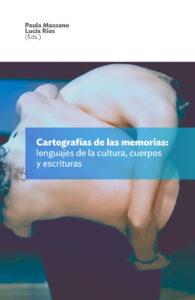Cartographies of memories: languages of culture, bodies, and writings
Keywords:
memory, human rights, linguisticsSynopsis
This book compiles the discussions of the research team of Literary Cartographies of the Southern Cone: 1970-2025: Memory, Body, and Human Rights (SeCyT-CIFFyH-CIFAL). It also brings together some of the contributions presented at the Ateneo conference “Bodies, Community, and Freedom in the Context of Current Memory and Human Rights Agendas” held in 2024, as well as contributions from individuals with diverse academic, personal, and activist backgrounds. Cartographies of Memories: Languages of Culture, Bodies, and Writings is the result of a collaborative effort that brings together the diverse voices of authors committed to human rights, historical memory, and linguistic-semantic disputes about freedom, experience, and community. Each article reflects a unique contribution, but together they share a common goal: to offer a playful and nuanced view of the languages of culture in the face of current hegemonic discourses, in order to trace cartographies that allow us to move between memories, bodies, and writings.
Chapters
-
Prologue. Cartographies of memories: languages of culture, bodies, and writings
-
Introduction. "Human rights and memory agendas: some notes"
-
Preliminary findings: drifts in the relationship between bodies, violence, and writings in the 1976 morgue book, in Córdoba, Argentina
-
What places, for what memories? What the Faculty of Psychology marks and unmarks
-
Sharing and nourishing the soul: rituals surrounding the detained-disappeared in Guerrero, Jujuy
-
Corp/oralities and sung popular memories: a proposal for female re-existence from Córdoba
-
Memories of plural writings: notes on texts by Gabriel Gatti and Julián AxatA comparative reading of the Argentine and Uruguayan processes in their memorial constructions of the dictatorships
-
Between politics, life, and literature: fictional biographies and the future of the (in)human
-
Filling the void through film: El padre (2016) by Mariana Arruti
-
World models: punishment of the female body as a cartography of the patriarchal order
-
Memories, bodies, and archives
-
Decolonizing time. Heterochronies and community from a situated perspective
-
The Hijacking of Experience: A Reading of Walter Benjamin from Suely Rolnik
-
Human emancipation as a “sensible explosion” of vital activity
-
Bodies, images, and algorithmic curators

Downloads
Published
Series
Categories
License

This work is licensed under a Creative Commons Attribution-NonCommercial-ShareAlike 4.0 International License.


